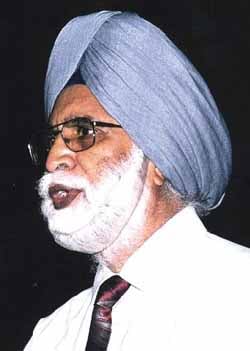In-Depth Coverage of Issues Concerning the Global Sikh Community Including Self-Determination, Democracy, Human Rights, Civil Liberties, Antiracism, Religion, and South Asian Geopolitics

| Through the union of mother and father are given the egg (blood) and semen (containing sperms); (the union of sperm with egg) forms the body (fetus in the uterus) |
| In the uterus (womb) the fetus develops with head down in tranquility where God arranges every type of food (for the developing baby through the umbilical cord) |
| -- Aad Guru Granth Sahib, p. 1013 |
| From the mother's egg (blood) and the flow of semen (containing sperms) of the father |
| The Infinite God has created a beautiful body (baby) |
| Energy (life) and all types of food have been provided (through the umbilical cord) by You, the Creator, who pervades everywhere |
| -- Aad Guru Granth Sahib, p. 1022 |
| The debates of Confederation clearly indicate that marriage was understood to be the union of one man and one woman when it was included in the Constitution Act, 1867. The inclusion of marriage in Sections 91 and 92 of the B.N.A. Act did not create the legal relationship of marriage. Nor did it give governments the power to define marriage. Instead it simply recognized, in the law, the pre-existing relationship of marriage - the union of one man and one woman. |
| More recently, the framers of the Charter of Rights and Freedoms understood marriage to be a union of one man and one woman when the Constitution Act, 1982 was adopted by Parliament and 9 out of 10 provincial legislatures. Therefore, the definition of marriage is deeply embedded in our country's Constitution. |
| The only possible way to change the definition of marriage from a monogamous, heterosexual relationship would be a constitutional amendment. This view was affirmed by B.C. Supreme Court Justice Ian Pitfield. |
| ... |
| In the M. v. H. case - dealing with same-sex rights - in writing for the majority, Supreme Court Justice Iacobucci clearly stated that the issue at hand was not a 'Challenge to traditional conceptions of marriage.' The Supreme Court made a further, strong statement about the definition of marriage in the Egan v. Canada case. Justice LaForest wrote for the majority: |
| . . . marriage has from time immemorial been firmly grounded in our legal tradition, one that is itself a reflection of long-standing philosophical and religious traditions. But its ultimate raison d'être transcends all of these and is firmly anchored in the biological and social realities that heterosexual couples have the unique ability to procreate, that most children are the product of these relationships, and that they are generally cared for and nurtured by those who live in that relationship. In this sense, marriage is by nature heterosexual. It would be possible to legally define marriage to include homosexual couples, but this would not change the biological and social realities that underlie the traditional marriage. |